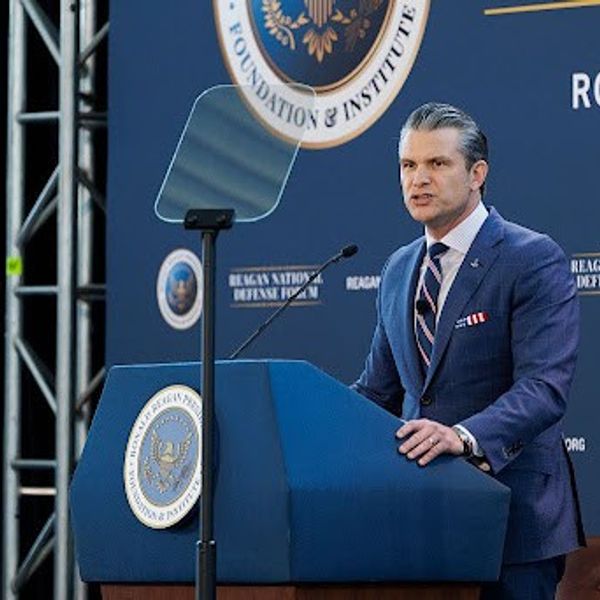Bottom Line Up Front
- There has been a significant rise in violence in Germany against those who speak out against anti-Semitism, xenophobia, and racist rhetoric.
- German pro-immigrant politician Walter Luebcke was fatally shot last month by a man known to authorities for ties to neo-Nazi groups.
- German authorities have a history of underestimating radical right-wing extremists and in some cases, sympathizing with their beliefs.
- German authorities need to be more efficient in bringing perpetrators of right-wing violence to justice, as well as more closely monitoring individuals with clear links to radical right-wing extremist groups.
German politician Walter Luebcke, known for his pro-refugee stance, was fatally shot last month by a man known to authorities for racist violence and ties to neo-Nazi groups. Luebcke, a member of German Chancellor Angela Merkel’s center-right Christian Democratic Union party, became a target of radical right-wing extremists after he defended Merkel’s refugee policy following the 2015 migration crisis in Europe. In 2015 and 2017 respectively, two local German mayors known for their pro-immigrant stances – Henriette Reker and Andreas Hollstein – survived near-fatal knife stabbings from suspects associated with radical right-wing extremism. Luebcke’s murder, considered the first political assassination since the Nazi era, coupled with these recent politically motivated attacks, has sparked new fears of a resurgence in radical right-wing violence. This resurgence highlights a disconnect between Germany’s shared consciousness of its Nazi past and its inability to collectively recognize and address radical right-wing extremism and violence in recent decades. Stephen Ernst, who confessed to killing Luebcke before retracting his statement, previously served time in prison for an attempted bombing of an asylum shelter. Authorities say that Ernst also nearly stabbed an immigrant to death and had ties to Combat 18, a neo-Nazi group that originated in the U.K. Authorities admitted that they should have kept better tabs on Ernst because of his previous behavior.
Violence against those who speak out against anti-Semitism, xenophobia, and anti-immigrant sentiment has been on the rise, too. Since 1990, radical right-wing extremists are believed to have committed over 150 murders throughout the country. Germany’s domestic intelligence agency estimates that there are now over 24,000 radical right-wing extremists in Germany, more than half of whom are considered violent. While these figures may be small in comparison to the total population, social media allows for these groups to have greater resonance with potential recruits, acting as a force multiplier in the spread of hateful propaganda. It is also not surprising that far-right-wing parties in Germany, notably the Alternative for Germany (AFD), have grown in influence since the 2015 migration crisis and now hold 91 of 709 seats in the German Parliament. The AFD has used immigration as a tool to fearmonger and has sought to normalize the viewpoint that immigration poses an existential threat to the German people.
Equally concerning is the presence of radical right-wing sympathizers within the German government. Members of Frankfurt’s police force engaged in a group-chat that is now being investigated for its regular use of Nazi iconography. German authorities have a history of underestimating radical right-wing extremists and in some cases, even sympathizing with their beliefs. Between 2000 and 2007, radical right-wing extremists from the National Socialist Underground (NSU) murdered ten people, primarily targeting individuals with Turkish and Kurdish backgrounds. German authorities initially believed that immigrants were behind those murders; a parliamentary inquiry showed that investigators deliberately ignored evidence even after it was clear the perpetrators were radical right-wing extremists. A member of the Frankfurt police group-chat sent threats to previous victims of the National Socialist Underground (NSU), signing the message as 'NSU 2.0.’
Germany’s Minister of the Interior, Horst Seehofer, admitted last month that the government needs to step up its efforts against radical right-wing extremism. In the post-9/11 era, the U.S. and Europe have allocated the lion-share of their resources to combating the threat posed by jihadist groups, only recently recognizing the growing threat posed by radical right-wing extremists in their home countries. Authorities should increase monitoring activities, both online and offline, to keep tabs on individuals with clear links to radical right-wing extremism, as well as those who offer support to neo-Nazi and anti-immigrant groups that espouse the use of violence. There is growing criticism in Germany that judicial responses need to be quicker and more efficient to build public trust that radical right-wing extremists will be brought to justice.
Read more in The Cipher Brief














